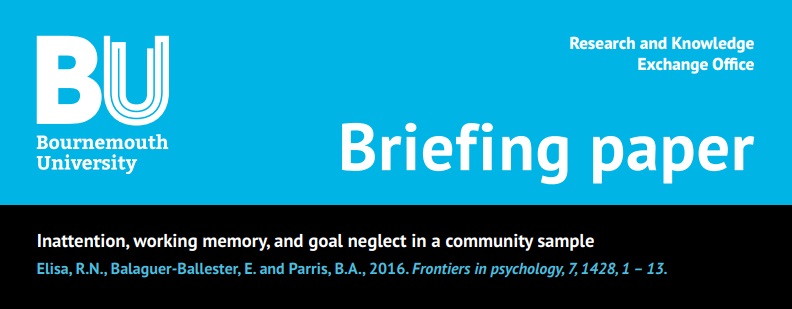 Our BU briefing papers are designed to make our research outputs accessible and easily digestible so that our research findings can quickly be applied – whether to society, culture, public policy, services, the environment or to improve quality of life. They have been created to highlight research findings and their potential impact within their field.
Our BU briefing papers are designed to make our research outputs accessible and easily digestible so that our research findings can quickly be applied – whether to society, culture, public policy, services, the environment or to improve quality of life. They have been created to highlight research findings and their potential impact within their field.
For many years Attention Deficit Hyperactivity Disorder (ADHD) was thought to be a disorder exclusive to childhood, and has only recently been recognised as existing in adults. Around 6% of adults have the classic ADHD symptom of inattention and have difficulty concentrating, remembering things and organisation.
This paper examines whether inattention may be linked with problems in the brain system which co-ordinate Working Memory (WM). WM allows you to hold information in your mind while either manipulating the information, or doing something else at the same time. It is essential to build a stable mental ‘task model’ to complete tasks at home, work or study.
Using the Conners Adult ADHD rating scale, adults aged 18–35 were assessed for ADHD symptoms and completed tasks designed to tap verbal and spatial aspects of WM.
Click here to read the briefing paper.












 Read and sign up to BU’s Policy Influence Digest
Read and sign up to BU’s Policy Influence Digest Upcoming opportunities for PGRs – collaborate externally
Upcoming opportunities for PGRs – collaborate externally BU involved in new MRF dissemination grant
BU involved in new MRF dissemination grant New COVID-19 publication
New COVID-19 publication MSCA Postdoctoral Fellowships 2024
MSCA Postdoctoral Fellowships 2024 Horizon Europe News – December 2023
Horizon Europe News – December 2023